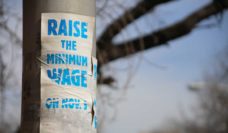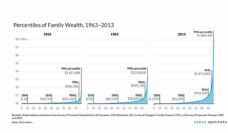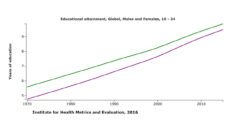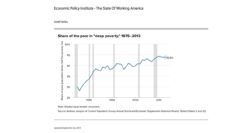Alfredo Morabia recently spoke with Public Health Post at the Boston University School of Public Health, where Dr. Morabia was participating in the Dean’s Symposium: “Reducing Health Inequities: Advancing Meaningful Change.” Following is a summary of that conversation, and also material from Dr. Morabia’s presentation, linked at the end of this profile.
On the difficulties of defining inequities
I want to stress how important history is when you define inequities. And when you define inequities, it is always in a historic context.
First of all, when do we start defining inequities? For most of human history, I mean, since there has been written documents, let’s say 6,000 years, there is no definition of inequity. Because we are lacking the fundamental concept that allows us to define inequities, and this is population. You know, for most of human history, the differences between people who are privileged or not, are explained by individual factors. It’s in their blood. You know, it’s in their heritage. It makes sense to think of the leaders in the antiquity were of divine origin. Because, this was the only type of explanation.
On the different definitions of inequities throughout history
So, we have to go now to the 19th century, to have the first, but still the most common definition of inequities. And it was based on the development of the bills of mortalities which became death certificates. And with these death certificates, people collected information about the people who had died, you know, their occupation, etc. So, it became possible to look at differences of health outcomes across categories of population who were more or less privileged.
It gave way to this categorical definition of inequities. And so, I think this definition is still the most common. It means that you have to identify those sectors of the population who are more at risk, you know, the poor, and intervene among the poor. And the rest of the society is not necessarily involved in the process.
And it works, it works very well because actually, the slums, the poverty, was eliminated by this type of intervention based on this type of data. You know, building sewages, improving houses, improving nutrition, all of this improved the life of people, even though it was based on the wrong causal explanation.
On being the editor-in-chief of AJPH
I think that AJPH has always had good research, excellent science. But this science was not made available to people outside of academia. So now I’m working on every paper so that the title, abstract, content, tables are readable. And if you look at the journal, I think that you’ll notice that.
I interact with lot of very interesting people. I have the chance of getting into people’s research, try to understand what they are doing, you know, interact with them to make a better product. I have a team of 26 editors who are fascinating people – all great personalities, defend their ground in their convictions and beliefs. So, it really is for me a great pleasure, an intellectual reward to be able to interact, collaborate, and get this thing together.
On the purpose and direction of AJPH
One [purpose] is to publish evidence and this it has always done. One thing I have added to it is that I think the journal can contribute to a culture of public health. I think there is a culture. I mean it’s not only the reality, the observations that we are publishing, in order to do that, we must have a vision of another society. We must have a vision of where we want to go to and this is culture. So, I’ve added to the journal, some things that have existed in the past but has been stopped for 20 years: a book review, a media review section.
On politics and public health
[AJPH] is non-partisan. I’m trying to publish visions from both sides or multiple sides and I’ve learned a lot from that. Because there are different opinions, they may converge on the rejection of inequities, the rejection of poverty, injustice, etc. but they are grounded in different ideology. We must respect that. So, I publish Republicans, I publish Democrats, I publish Senators.
But it is actually how, you know, when we want to translate our research into practice, etc. we are dealing with a specific political environment and I call it historical because I want to put every aspect of it together. But of course, those ideas need to be discussed and I’m open for people from, again, lot of different environments and I learn from that. We must remember that public health is a tool, is a discipline, it is not a political art in itself.
Feature image: courtesy of the Office of Communications for Media Relations, Columbia University Mailman School of Public Health
Dr. Morabia was interviewed at the the Dean’s Symposium: Reducing Health Inequities: Advancing Meaningful Change , at the Boston University School of Public Health on February 1, 2017.














